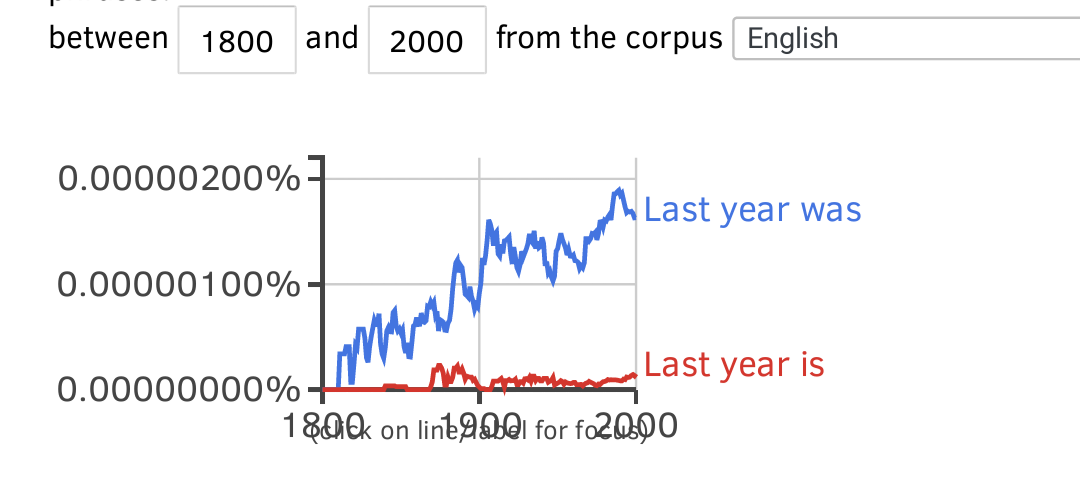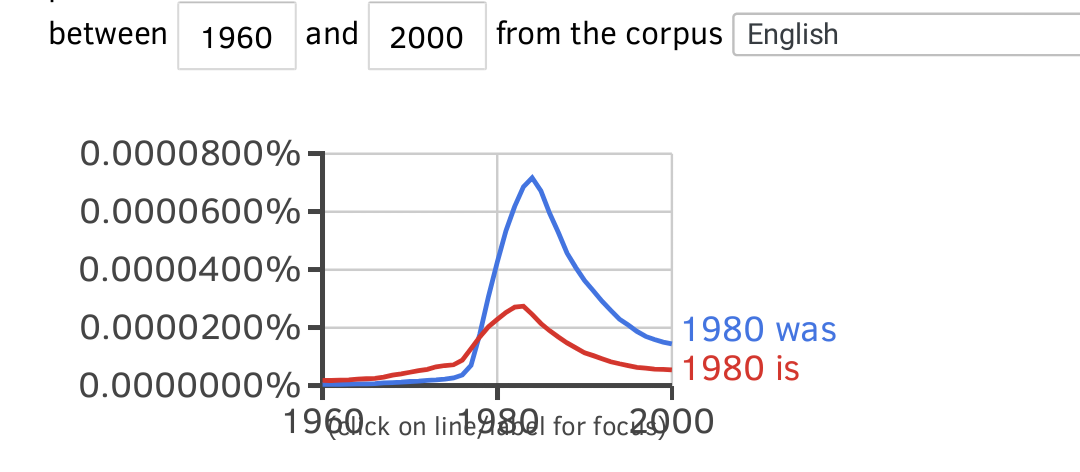Is “Last year is 2016” correct?
I wonder whether to use the past or present tense here.
Another example: "1980 is the year I was born" or "1980 was the year I was born."
"Last year", when it refers to the year that just passed, as passed, takes the past tense, was.
Last year was a banner year for Acme Widgets.
But if you're looking at a chart, say, and are referring to a data-point on the chart that represents data from last year, it is common to refer to that data as "last year", and then you could say something like:
As the chart shows, last year is truly an aberration.
But in that case, you're not using the phrase last year to refer to the year that just passed, but merely as a convenient label for something else, even if it bears some relation to the year that just passed, and you're referring to the chart in front of you.
P.S. If the year is included in some present context we can use is:
As you can see, last year is a banner year.
But absent such present context we would not say:
Last year is a banner year for Acme Widgets. unidiomatic without a context
Whenever 'last year' means 'the past year', the past tense "was" should be used, as in this particular case:
Last year was 2016.
According to Google Ngrams which statistically quantifies and can compare the frequency of usage of particular expressions or constructions, "last year was" has always been (and remains) much more popular than "last year is" which has hardly been used over the last 200 years, especially when 'last' is capitalized which indicates that 'last year was/is' comes at the start of a sentence:

Source page: Ngram for "Last year was" vs "Last year is"
Examples where "last year is" sounds appropriate:
considering our company's progress over the last decade, last year is the year of maximum financial growth.
Last year is special for so many reasons!
Note that "last year was" would be equally grammatical in both cases, but the "fine shade of meaning" might change a little, depending on the context.
On the other hand, any specific past year such as 1980 is not always interpreted as 'the past year 1980' and can also be understood as 'the specific year 1980', so 'is' may be found used somewhat more often than with "last year", although 'was' is still found more commonly used, as shown by Ngrams:

Source page: "Ngram for "1980 was" vs "1980 is"
Other examples for using a particular year with a verb in the present tense:
2016 is over // 2016 is done and dusted.
2016 remains a landmark year for the global economy.
1943 is remembered as the year the tide of the War began to turn in the Allies' favor.
1776 is historic // is important in history because...
1776 is the year that the American Revolution began.
1776 represents a historic change in our politics.
Note too that
"1960 is the year I was born"
might be technically correct but native speakers of English are more likely to say
"I was born in 1960."
Example:
Friend:""So what is so special about 1960?"
Non native speaker: "1960 is the year I was born."
Native speaker: "I was born in 1960."
I am not a native speaker myself and would be very interested to know native speakers' views; also willing to be corrected in this matter!
I'm very interested in this question. I try to put an answer here, but I am not sure if I am right. So feel free to downvote and add any comments. My intention is to get it clear.
First, after talking with Tᴚoɯɐuo, it should be 'last year was 2016'.
Second, both XXxX is the year I was born... and XXxX was the year I was born... can be correct based on the context. When you put yourself to the past, you should use XXxX was. Putting to the present, then use XXxX is.